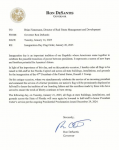Radical right populists deliberately undermining democracy with misinformation
The new study looked at 32 million tweets from parliamentarians from 26 countries over six years and several election periods. The researchers combined this with data on political parties, elections, governments and democracy indicators (from the Parlgov and V-Dem databases), as well as fact-checking sources like Media Bias/Fact Check and Wikipedia’s Fake News list. This allowed them to identify specific patterns linking misinformation to political parties and their ideological leanings. The study shows that radical right populism is the strongest predictor of misinformation dissemination, with neither left-wing populism nor right-wing politics alone significantly linked to misinformation.
However, more recent studies have revealed that most people in fact do not consume or share misinformation. Instead, misinformation is concentrated among specific electoral groups, and often associated with partisan identity or distrust of institutions. The new research therefore suggests studying misinformation as an expression of party politics.
Left-wing populists, by contrast, focus on economic grievances and participatory democracy, making misinformation less central to their communication strategies. Radical right populists, however, emphasise cultural grievances and opposition to democratic norms, creating fertile ground for misinformation to flourish.
Role of alternative media
The study highlights the symbiotic relationship between radical right populists and the competitive attention economy shaped by digital media. ‘Radical right populists have been effective in creating and utilising alternative media ecosystems that amplify their viewpoints, ranging from online news websites and blogs to more traditional forms of media like television and radio, which have been reconfigured to cater to populist radical right narratives.
Radical right populists deliberately undermining democracy with misinformation - Universiteit van Amsterdam



